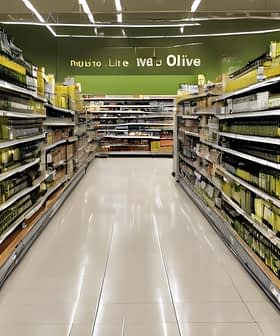
At a recent parliament session the Greek Minister of Agriculture, Prof. Athanasios Tsaftaris referred to the European Union’s regulation 432/2012 that will become effective on December 14th and the prospects it opens for Greek olive oil and olives. The regulation contains a list of permitted health claims which can be attributed to food products of the EU state members if they comply with certain conditions.
Simply put, if a food product contains an ingredient termed by the regulation as responsible for the beneficial effect of the food product on humans, then this substance can be reported on the label of the product to differentiate it from others.
Among others, the regulation defines olive oil polyphenols as the drastic substance to sustain the claim that “polyphenols contribute to the protection of blood lipids from oxidative stress” and sets that this assertion may be used only when the olive oil contains at least 5mg of hydroxytyrosol and its derivatives per 20g of oil. Oleic acid is also enlisted and is applicable for food high in unsaturated fatty acids.
According to Prof. Tsaftaris, the Greek state played a crucial role in the acknowledgement nutritional value of olive oil polyphenols by the European Commission and their inclusion in the list. “The regulation seeks to give accurate factual information to show when there is a true beneficial effect and not mislead the consumer.
Tsafaris said Greek olive oils procure an advantage over competitive products since the biodiversity and the special microclimatic conditions of olive oil-oil producing areas of Greece give the products extra qualities. “Because our environment, our biodiversity, and the abundance of varieties we have, this enables us to really identify suitable varieties.”








